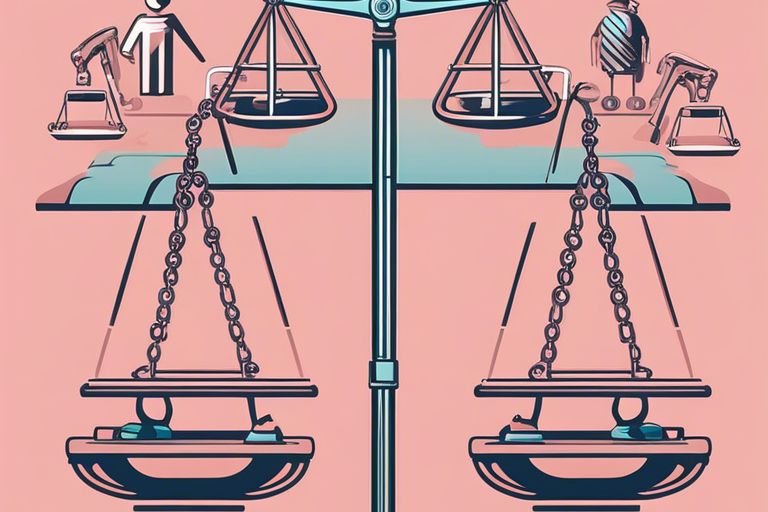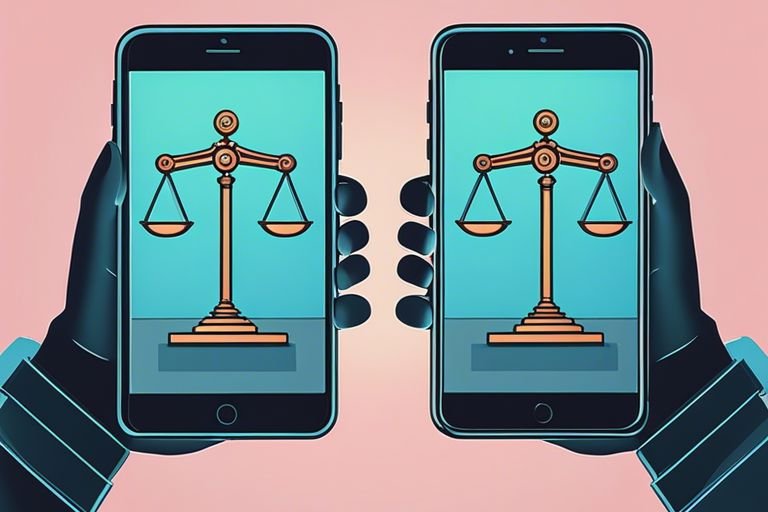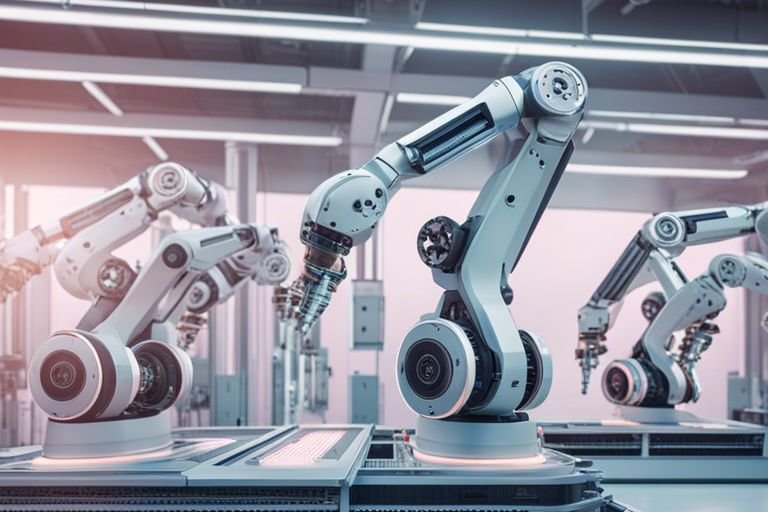What ethical concerns surround the use of AI in today's society?

Welcome to our blog post on the ethical concerns surrounding the use of AI in today’s society. In recent years, artificial intelligence has increasingly become a part of our daily lives, from powering virtual assistants to influencing our social media feeds. However, as AI continues to advance, it also presents a number of ethical dilemmas that should not be ignored. In this post, we will explore some of the most pressing ethical concerns surrounding the use of AI, and how they may impact you and your community.
Key Takeaways:
- Lack of transparency: The use of AI in various industries raises concerns about transparency in decision-making processes. As AI algorithms become increasingly complex, it becomes difficult for end-users to understand how these systems arrive at their conclusions, leading to potential biases and discrimination.
- Data privacy: The collection and use of large amounts of personal data to train AI systems can lead to significant privacy concerns. There is a risk of unauthorized access to sensitive information, as well as potential misuse of data for unauthorized surveillance or profiling.
- Accountability and liability: The deployment of AI systems also raises questions about who should be held accountable when these systems make errors or cause harm. As AI becomes more integrated into crucial decision-making processes, the need for clear lines of responsibility and liability in case of adverse outcomes becomes increasingly urgent.

AI and Privacy
Obviously, the use of AI in today’s society raises significant concerns about privacy. As AI continues to advance and become more integrated into everyday life, it has the capability to collect, analyze, and store vast amounts of personal data. This raises questions about how this data is being used, who has access to it, and what measures are in place to protect individuals’ privacy.
Data Collection and Surveillance
With the increasing use of AI technology, there is a growing concern about the extensive data collection and surveillance that comes with it. AI systems have the ability to track and monitor individuals’ online and offline activities, including browsing habits, location tracking, and even facial recognition. This has the potential to infringe on your privacy and autonomy, as your every move could be monitored and analyzed without your consent.
Consent and Individual Rights
Another ethical concern surrounding AI and privacy is the issue of consent and individual rights. When your personal data is collected and used for AI algorithms without your explicit consent, it can lead to a violation of your privacy rights. You may not have control over how your data is being used, and this lack of transparency and accountability can put your privacy at risk. It’s important to advocate for regulations and policies that ensure your consent is obtained before your personal data is used in AI systems.
By addressing these concerns, you can take steps to protect your privacy and ensure that AI technology is used ethically and responsibly. It’s important to stay informed about the ways in which AI may impact your privacy and advocate for greater transparency and accountability in the use of AI systems. Your privacy rights are essential, and it’s crucial to hold organizations and policymakers accountable for protecting your personal data. Strong regulations and ethical guidelines are needed to safeguard your privacy in an increasingly AI-driven society.
Bias and Discrimination
Any use of AI in today’s society comes with ethical concerns, especially when it comes to bias and discrimination. The use of AI has the potential to perpetuate and even exacerbate existing social inequalities and discrimination if not properly regulated and monitored.
Bias in AI Algorithms
AI algorithms can inadvertently perpetuate bias and discrimination if they are trained on data that reflects societal inequalities. For example, if an AI system is trained on historical data that is biased against certain groups, it will continue to make biased decisions based on that data. This can lead to discriminatory outcomes in areas such as hiring, lending, and law enforcement.
Impacts on Social Equality
The use of AI in decision-making processes can have significant impacts on social equality. If not properly monitored and regulated, AI systems can reinforce existing social inequalities, exacerbating disparities in areas such as access to healthcare, education, and employment. Additionally, the use of AI in predictive policing and criminal justice systems can lead to discriminatory outcomes and further perpetuate social injustice.
By understanding the potential for bias and discrimination in AI algorithms and the impacts on social equality, you can advocate for greater transparency, accountability, and oversight in the development and deployment of AI technologies. It is important to recognize the role that bias and discrimination play in AI systems and work towards mitigating these ethical concerns to ensure a more equitable and just society. Being aware of these issues and advocating for change can help address the ethical concerns surrounding the use of AI in today’s society.
AI and Employment
Now, let’s talk about how the use of AI in today’s society is impacting employment. As artificial intelligence continues to advance, many people are concerned about its potential effects on the job market and the future of work.
Automation and Job Displacement
One of the major ethical concerns surrounding AI in the workplace is the potential for automation to displace human workers. As AI technology becomes more sophisticated, it has the ability to perform tasks that were once exclusively done by humans. This has led to fears that many jobs will become obsolete, leaving individuals without employment opportunities. The rapid pace of automation has the potential to create significant disruption in various industries, leading to unemployment and economic instability. It is crucial for society to carefully consider the ethical implications of widespread job displacement due to AI technology.
The Future of Work and Skill Gaps
Another important consideration is the future of work and the potential for skill gaps to widen as AI becomes more prevalent in the workplace. While AI has the ability to streamline processes and increase efficiency, it also raises concerns about the impact on human skill development. As AI takes over certain tasks, there is a risk that human workers may become less skilled in certain areas, leading to potential job market challenges. It is important to consider how AI will impact the development of human skills and the potential for individuals to adapt to the changing demands of the workforce.
In conclusion, the impact of AI on employment raises significant ethical concerns that need to be carefully addressed. The potential for widespread job displacement and the widening of skill gaps are important factors to consider as society continues to integrate AI into various industries. It is crucial to monitor these developments and consider the implications for the future of work. It is important for individuals and organizations to proactively address these concerns and work towards solutions that prioritize the well-being and livelihoods of workers.
Responsibility and Accountability
For any technology, including AI, there is a crucial need to establish responsibility and accountability. As AI becomes more advanced and integrated into various aspects of society, it is essential to consider who should be held accountable for the decisions and actions of AI systems.
Who is Liable for AI Decisions?
When it comes to AI decisions, the question of liability becomes increasingly complex. In some cases, you may assume that the creators of AI systems should be held accountable for any decisions made by the AI. However, as AI systems become more autonomous and capable of learning and adapting, it becomes challenging to clearly define who is responsible for their actions. This presents a significant ethical concern, as it can be difficult to assign accountability when AI systems operate independently and make decisions that have real-world consequences.
Safeguarding Against Malfunctions and Misuse
Another ethical concern surrounding the use of AI is the need to safeguard against malfunctions and misuse. As AI systems become more prevalent in areas such as healthcare, transportation, and finance, the potential impact of malfunctions or misuse becomes increasingly significant. It is crucial to implement strict guidelines and regulations to ensure that AI systems are developed and used in a responsible manner. This includes thorough testing and validation to minimize the risk of malfunctions, as well as establishing protocols to prevent misuse of AI technology for malicious purposes.
Conclusion: Ethical concerns surrounding the use of AI
Now, you have a deeper understanding of the ethical concerns surrounding the use of AI in today’s society. It is crucial to recognize the potential for biases and discrimination embedded in AI algorithms, as well as the potential for job displacement and privacy violations. It is imperative to advocate for transparency, accountability, and fairness in the development and deployment of AI technologies. Furthermore, it is essential to engage in ongoing conversations and debates about the ethical implications of AI to ensure that its benefits are maximized while mitigating potential harms. As individuals and members of society, you have an important role to play in shaping the ethical framework of AI and promoting responsible and ethical use of AI technologies.



